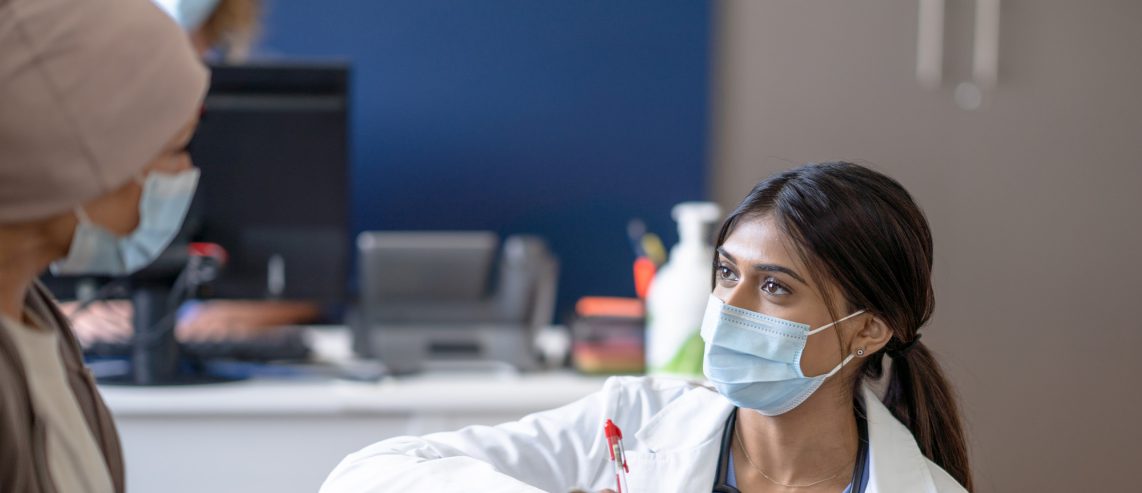Intestinal rehabilitation uses medicines, surgery, nutrition programs, or a combination to help adults absorb nutrients from food.
Through a multidisciplinary approach, a patient’s life with severe bowel disorders and diseases can significantly improve. The goal is to restore the patient’s gastrointestinal tract so that the patient can reduce or eliminate the use of parenteral/enteral nutrition.
Never Miss a Beat!
Subscribe to Our HealthBeat Newsletter!
Thank you for subscribing!
You can now select the specific newsletters you'd like to receive.
You are already subscribed.
Subscribe to more newsletters in our email preference center.
Sorry, an error occurred. Please try again later.
Get Healthy Tips Sent to Your Phone!
Who Is Eligible for Intestinal Rehabilitation?
This treatment approach is for adults who:
- Are currently on parenteral nutrition (PN).
- Are not on PN but poorly absorbing nutrients.
- Have an adequate small intestine.
Most of those who need PN or have low absorption of nutrients have short bowel syndrome. This is when the intestine is not long enough to properly absorb nutrients from food.
In many cases, people have a short bowel due to surgery. A surgeon may remove part of the intestine to treat Crohn’s disease, cancer, or intestinal injury and inflammation.
What Can You Expect with Intestinal Rehabilitation?
How long you need intestinal rehabilitation, and how often you will visit the clinic, depend on many factors. These include how you respond to treatment, your age, and your preexisting intestinal function.
Most patients stay in an intestinal rehabilitation program for many months, at minimum. Patients typically meet with team members once a week, virtually or in person.
The first step will be an evaluation of your intestinal health. Doctors may perform imaging, blood, or other tests.
The team will work together with you to create a personalized nutritional program. They may adjust the PN formula while gradually introducing nutrition via feeding tube or by mouth.
At the same time, the team will prescribe medications. This often includes an antidiarrheal medication and a hormone that helps the intestine absorb nutrients. The team will also conduct tests to measure nutrient levels in the blood.
A large part of any intestinal rehabilitation program is patient education. The team will help you understand your nutritional needs, how to introduce foods, and how to take medicines. They will outline the signs and symptoms that need medical attention.
If surgery is likely to improve your condition, the surgeon will discuss the benefits and risks. A common surgery involves narrowing and lengthening the intestine by cutting and reattaching it.
Even after you stop PN, the team will continue to monitor you. As the condition improves, they will see you less often.
How Successful Is Intestinal Rehabilitation?
Advances have led to a reduction in the need for intestinal transplants. According to government data, the number of patients on the waiting list has more than halved in the last decade.
By slowly taking patients off PN, intestinal rehabilitation means patients avoid its complications. These can include catheter-related infections and liver failure.
With the goal of increasing oral food consumption, intestinal rehabilitation improves overall mental wellbeing and long-term physical health.
Sources
Dr. Alan Buchman. Intestinal Failure and Rehabilitation. Gastroenterology Clinics of North America. Link
Laura Matarese. Intestinal Rehab. The Oley Foundation. Link
Dr. J. Y. K. Yap et al. Paediatric intestinal failure and transplantation. Journal of Paediatrics and Child Health. Link
Dr. Danielle Wendel et al. Approach to Intestinal Failure in Children. Current Gastroenterology Reports. Link
Dr. C. J. Park et al. A National Survey of Pediatric Intestinal Rehabilitation Programs in the United States. Journal of Parenteral and Enteral Nutrition. Link
About Digestive Disorders
UPMC Digestive Health Care cares for a wide range of gastrointestinal (GI) conditions and diseases, from diagnosis to treatment. Whether your digestive condition is common or complicated, our experts can help. Upon referral from your physician, we coordinate your testing and treatment. If you have a complicated condition, we can refer you to one of UPMC’s digestive health centers of excellence. Find a GI doctor near you.
